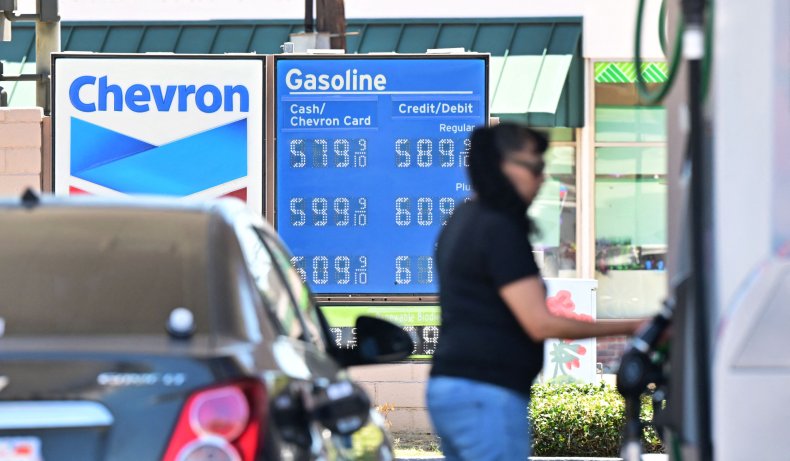Saudi Arabia announced earlier this week that it will further reduce its oil production in a unilateral attempt to rise the price of crude, which two previous cuts agreed by major producing countries in the OPEC+ alliance couldn't prop up.
The cuts, equal to 1 million barrels per day starting in July, are likely to send shockwaves through the global market, including the United States—though the consequences might be felt six to eight months from now, according to experts. That means that any trouble with gas prices in the U.S. would hit the country when President Joe Biden will be in the middle of his re-election campaign.
As of June 6, the U.S. retail gasoline average is $3.553 per gallon, according to AAA, $1.36 below the levels reported in this same period a year ago.
Patrick De Haan, head of petroleum analysis at GasBuddy, told Newsweek that "there isn't much concern of an immediate and major rise in oil and gasoline prices" as a consequence of the latest cuts in production.

Denton Cinquegrana, the chief oil analyst at the agency Oil Price Information Service, agrees, saying that he doesn't think there is a big near-term impact on U.S. gasoline prices.
"I have been saying this for some time now but as the calendar stretches into the summer, I believe the chance of $4 per gallon is limited, outside of a big catalyst like a hurricane knocking out refineries in the U.S. Gulf Coast," he told Newsweek. "The market reaction to the Saudi cut has been 'meh.'"
"The unilateral cuts by Saudi Arabia feels like a 1-month trial balloon for July," Cinquegrana said. "That is also a time of year where the Saudis use a lot of oil for domestic purposes and air conditioning. The initial market reaction was strong, but the market sputtered from there.
"I do think that the impact on retail gasoline prices in the U.S. will be limited at best from the Saudi cuts. While U.S. inventories are below seasonal norms, the market seems quite comfortable from a supply and demand standpoint."
But both experts agree that there's a risk gas prices might creep up later in the year.
"The cuts have more long-term implications and almost no immediate implications beyond prices rising a few cents here and there. It will take time for the cuts to lead to even lower oil inventories," De Haan said.
"The risk increases down the road that when U.S. and global oil demand rise in line with a potential economic recovery, low oil inventories could escalate oil prices when that occurs," he added. "It could be 6-12 months or longer."
In the longer term, Cinquegrana said that analysts are also keeping an eye on the possibility of some internal OPEC strife and on the production coming from Russia.
"Their production has come in, but they are still producing a significant amount," he said. "There is also some question as to whether they are adhering to their commitments to OPEC+ agreements, or not."
Under the OPEC+ deal, Russian Deputy Prime Minister Alexander Novak pledged to extend its voluntary cut of 500,000 barrels a day through next year, Russian state news agency Tass reported.
Newsweek reached out to the White House via email for comment.
from "price" - Google News https://ift.tt/d2wpU0q
via IFTTT
No comments:
Post a Comment